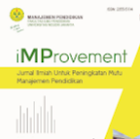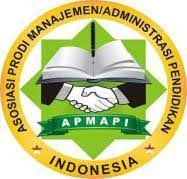IMPLEMENTASI PROGRAM GERAKAN LITERASI SEKOLAH DI SMA
(Studi Evaluasi)
DOI:
https://doi.org/10.21009/improvement.v8i2.21763Keywords:
Gap, Program Evaluation, Literasi SekolahAbstract
This study is a study of the evaluation of gaps in the implementation of the School Literacy Movement program in two high school in the South Jakarta area. As an intervention program launched by the government to assist learners in developing critical, creative, innovative, entrepreneurial attitudes, social empathy behavior, and love for knowledge, it is necessary to know the extent to which the program has an impact in improving reading skills understanding in learners and what gaps in running GLS programs through the gap evaluation model (The Discrepancy Evaluation Model). The model developed by Malcolm Provus with this qualitative approach generally aims to obtain information about gaps in the implementation of the GLS program. Research data is obtained through observations, interviews, and document studies. Data analysis is carried out with three flow of activities that occur simultaneously, namely: data reduction, data presentation, data withdrawal or verification. results showed that the positive impact of gls program implementation can be monitored even though academic measurement has not been done. One of the related to the success of KBM is the increased readiness of students in attending KBM, increased confidence when speaking in public and writing. Gaps in program implementation in both high schools appear in the design of the target and installation of the program implementation, although both boil to the development of language skills and literacy of learners. In addition, there needs to be a firmer emphasis in the master design that the establishment of a literate environment is the responsibility of all school residents. Despite the gaps that occur in the implementation of school conditions have allowed the formation of a literate environment.
Downloads
Published
How to Cite
Issue
Section
License
Copyright (c) 2021 Supadi Supadi, Heru Santoso

This work is licensed under a Creative Commons Attribution-NonCommercial-ShareAlike 4.0 International License.
Authors who publish with this Journal agree to the following terms:
- Author retain copyright and grant the journal right of first publication with the work simultaneously licensed under a creative commons attribution licensethat allow others to share the work within an acknowledgement of the work’s authorship and initial publication of this journal.
- Authors are able to enter into separate, additional contractual arrangementfor the non-exclusive distribution of the journal’s published version of the work (e.g. acknowledgement of its initial publication in this journal).
- Authors are permitted and encouraged to post their work online(e.g. in institutional repositories or on their websites) prior to and during the submission process, as it can lead to productive exchanges, as well as earlier and greater citation of published works.
-
Users/public use of this website will be licensed to CC BY-NC-SA (Attribution & Non-Commercial-ShareAlike)



